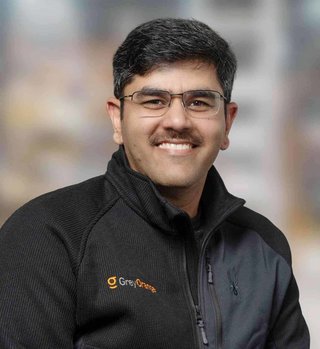Automation Reigns Supreme Within the Retail Industry During 2023
By Samay Kohli
CEO & Co-founder, GreyOrange
The past three years have been challenging for the entire world. The sudden, almost overnight shift toward e-commerce and lack of active labor, exposed weaknesses, and vulnerabilities across global and local supply chains alike. The entire world suddenly depended almost solely on ecommerce, highlighting fulfillment as a fully-fledged competitive advantage, and accelerating the already growing move to online shopping. The mix has returned to more than expected levels as stores have reopened, highlighting further the need for more flexibility in how we move things around the world.
For retailers, being able to expand and contract operationally in line with market demand is fast becoming a possibility and we see many leading brands pushing the limits to deliver next-generation solutions.

Retailers have shown immense levels of agility and demonstrated their commitment to the markets they serve throughout this turbulent period, many of whom have swallowed huge losses to ensure that the world keeps turning. This is further compounded by uncertainty around energy and transportation costs, consumer demand, and more supply chain challenges in the global political economic environment.
However, we do see signs of recovery, namely in alternative sources of energy and positive indicators of economic stabilization on the near horizon. This bodes well for retailers who are rethinking their fulfillment capabilities and processes.
Leading brands are looking forward and have evolved to treat fulfillment as a key ‘customer service’ component. Low or no shipping costs, a seamless returns function and immediacy of delivery are the motivating key buying factors in all online purchases. Given the enormous amount of choice, these factors are often the difference between winning business, or losing it. To meet these changing demands, fulfillment is evolving from a centralized mechanical function to an intelligent, modular network of distribution nodes, driven by robotic automation.
The advancements in robotics, intelligent software, and flexible financing are enabling ‘dead space’ and ‘dark stores' to become active local distribution hubs. Rethinking every fulfillment capability and process, retailers are using innovative tech and automation to turn their retail spaces into multi-functional operations architected to help create unique customer experiences that will stand at the forefront of enticing customers to return to stores in person. This both moves inventory closer to the customer and maximizes available floorspace, building out customer service capabilities while reducing shipping and distance.
2023 is already looking like a busy year for us here at GreyOrange, with nearly all of our customers expanding their capabilities in robotics. The retail market tends to feel the effects of economic change fairly directly and operational flexibility will be a key focus in the year ahead and beyond. Being able to expand and contract operationally in line with market demand is fast becoming a possibility and we see many leading brands pushing the limits to deliver next-generation solutions.
Consumer needs will continue predicating many leading brands’ push for delivering exceptional customer experiences, which will further transform the overall retail landscape. Such an industry transformation will require a strong workforce - both human and robotic - in 2023 and beyond. Retailers that invest in future-proofing their businesses with automation and the most responsible use of tech will see improved processes and procedures, as well as safeguards against disruptions that could shut down operations.




Samay Kohli is the CEO & Co-Founder at GreyOrange, a global leader in automated robotic fulfillment and inventory optimization software. GreyOrange Inc. provides a state-of-the-art hardware agnostic fulfillment orchestration platform, GreyMatter™, that responds to customer orders in real time as well as proprietary and certified third-party hardware. The company’s solutions offer a competitive advantage by increasing productivity, empowering growth and scale, mitigating labor challenges, and reducing risk and time to market while also creating better experiences for customers and employees. Founded in 2012, GreyOrange is headquartered in Atlanta, Georgia, and employs over 800 people with offices and partners across the Americas, Europe, and Asia.